BMW iX vs VW ID.4 – Which model is better for everyday use?
Compare performance, boot capacity, efficiency and price at a glance.
Find out which car is the better choice for you – BMW iX or VW ID.4?
Costs and Efficiency:
Looking at overall running costs, both models reveal some interesting differences in everyday economy.
VW ID.4 has a convincingly advantage in terms of price – it starts at 34600 £, while the BMW iX costs 71600 £. That’s a price difference of around 36999 £.
In terms of energy consumption, the advantage goes to the VW ID.4: with 15.60 kWh per 100 km, it’s a bit more efficient than the BMW iX with 17.80 kWh. That’s a difference of about 2.20 kWh.
As for range, the BMW iX performs to a small extent better – achieving up to 701 km, about 132 km more than the VW ID.4.
Engine and Performance:
Power, torque and acceleration are the classic benchmarks for car enthusiasts – and here, some clear differences start to show.
When it comes to engine power, the BMW iX has a convincingly edge – offering 659 HP compared to 340 HP. That’s roughly 319 HP more horsepower.
In acceleration from 0 to 100 km/h, the BMW iX is decisively quicker – completing the sprint in 3.80 s, while the VW ID.4 takes 5.40 s. That’s about 1.60 s faster.
In terms of top speed, the BMW iX performs distinct better – reaching 250 km/h, while the VW ID.4 tops out at 180 km/h. The difference is around 70 km/h.
There’s also a difference in torque: BMW iX pulls noticeable stronger with 1015 Nm compared to 679 Nm. That’s about 336 Nm difference.
Space and Everyday Use:
Cabin size, boot volume and payload all play a role in everyday practicality. Here, comfort and flexibility make the difference.
Both vehicles offer seating for 5 people.
In curb weight, VW ID.4 is distinct lighter – 1975 kg compared to 2525 kg. The difference is around 550 kg.
In terms of boot space, the VW ID.4 offers hardly perceptible more room – 543 L compared to 500 L. That’s a difference of about 43 L.
In maximum load capacity, the BMW iX performs barely noticeable better – up to 1750 L, which is about 175 L more than the VW ID.4.
When it comes to payload, BMW iX hardly perceptible takes the win – 575 kg compared to 551 kg. That’s a difference of about 24 kg.
Who comes out on top?
Overall, the BMW iX shows itself to be leaves the rival little chance and secures the title of DriveDuel Champion.
It convinces with the more balanced overall package and proves to be the more versatile choice for everyday use.
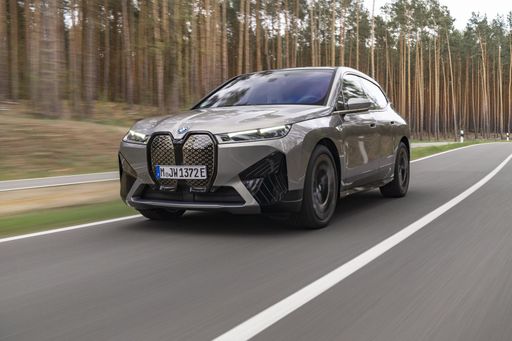
BMW iX
BMW iX
The BMW iX presents a bold step into the future of electric vehicles, combining eco-friendly performance with luxurious comfort. Its sleek design and state-of-the-art technology offer a driving experience that feels both modern and sophisticated. Inside, high-quality materials and an intuitive interface ensure that driver and passengers alike enjoy an immersive journey.
details @ press.bmwgroup.com
@ press.bmwgroup.com
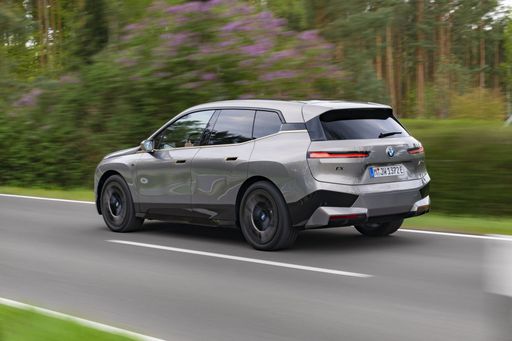 @ press.bmwgroup.com
@ press.bmwgroup.com
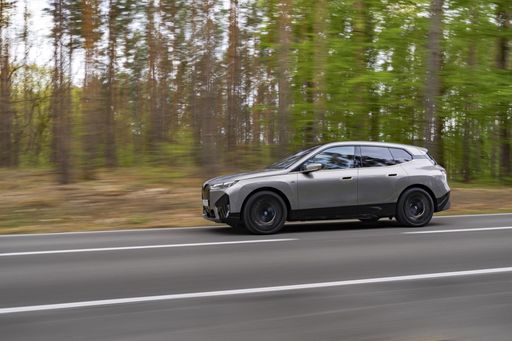 @ press.bmwgroup.com
@ press.bmwgroup.com
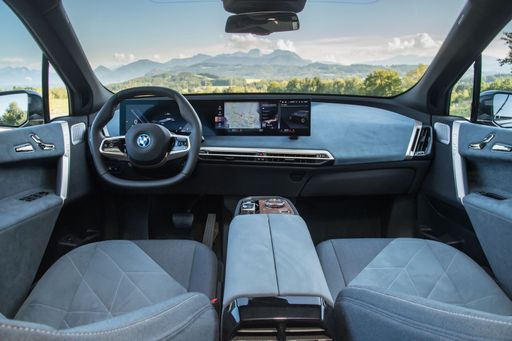 @ press.bmwgroup.com
@ press.bmwgroup.com
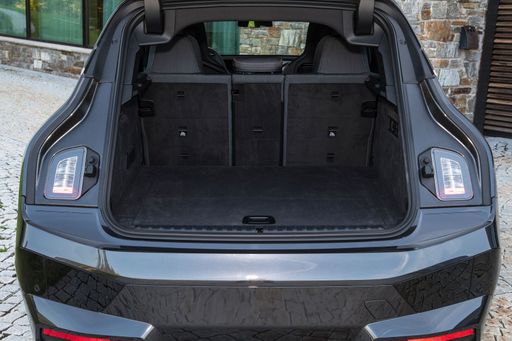 @ press.bmwgroup.com
@ press.bmwgroup.com
VW ID.4
The VW ID.4 represents Volkswagen's commitment to the electric vehicle market, combining contemporary design with sustainability. Its spacious interior and intuitive technology make it an attractive choice for those seeking comfort and innovation in an eco-friendly package. With a focus on electric performance and practicality, this car is set to be a popular option among environmentally-conscious drivers.
details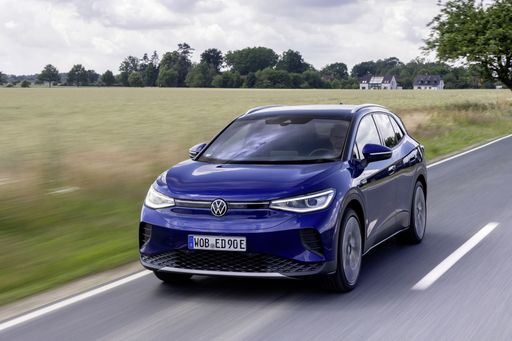 @ Volkswagen
@ Volkswagen
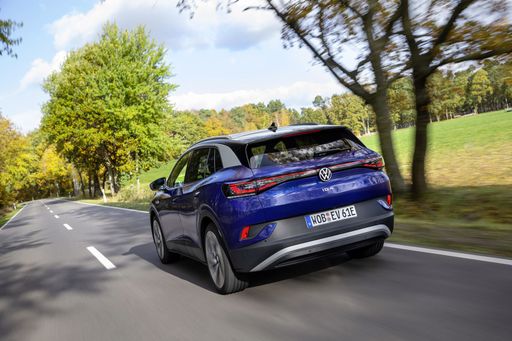 @ Volkswagen
@ Volkswagen
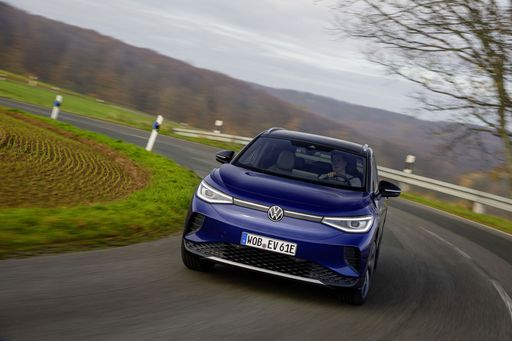 @ Volkswagen
@ Volkswagen
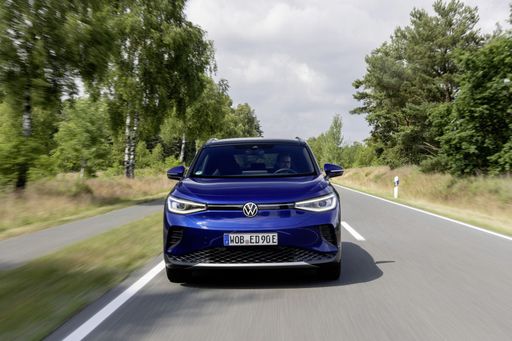 @ Volkswagen
@ Volkswagen
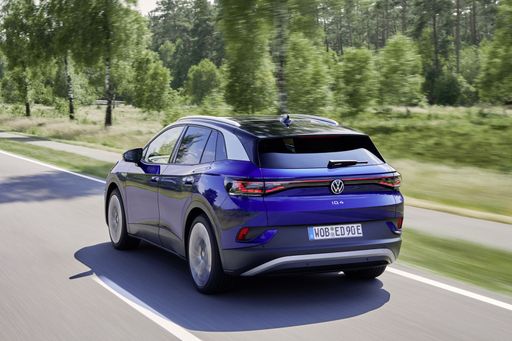 @ Volkswagen
@ Volkswagen
 @ Volkswagen
@ Volkswagen
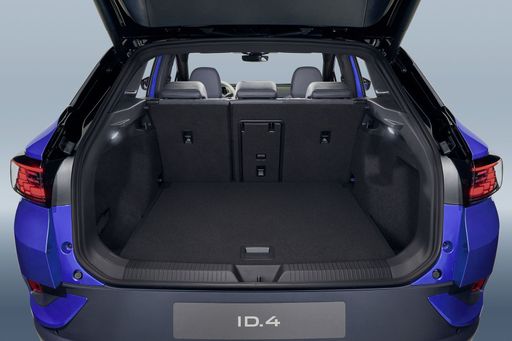 @ Volkswagen
@ Volkswagen
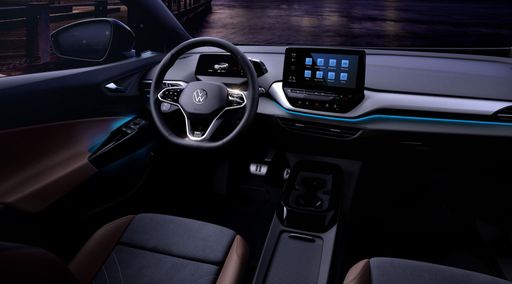 @ Volkswagen
@ Volkswagen

|

|
|
|
|
Costs and Consumption |
|
|---|---|
|
Price
71600 - 107100 £
|
Price
34600 - 47200 £
|
|
Consumption L/100km
-
|
Consumption L/100km
-
|
|
Consumption kWh/100km
17.8 - 20.6 kWh
|
Consumption kWh/100km
15.6 - 17 kWh
|
|
Electric Range
600 - 701 km
|
Electric Range
356 - 569 km
|
|
Battery Capacity
96 - 109.6 kWh
|
Battery Capacity
52 - 77 kWh
|
|
co2
0 g/km
|
co2
0 g/km
|
|
Fuel tank capacity
-
|
Fuel tank capacity
-
|
Dimensions and Body |
|
|---|---|
|
Body Type
SUV
|
Body Type
SUV
|
|
Seats
5
|
Seats
5
|
|
Doors
5
|
Doors
5
|
|
Curb weight
2525 - 2655 kg
|
Curb weight
1975 - 2248 kg
|
|
Trunk capacity
500 L
|
Trunk capacity
543 L
|
|
Length
4965 mm
|
Length
4582 - 4584 mm
|
|
Width
1970 mm
|
Width
1852 mm
|
|
Height
1688 - 1695 mm
|
Height
1619 - 1634 mm
|
|
Max trunk capacity
1750 L
|
Max trunk capacity
1575 L
|
|
Payload
505 - 575 kg
|
Payload
511 - 551 kg
|
Engine and Performance |
|
|---|---|
|
Engine Type
Electric
|
Engine Type
Electric
|
|
Transmission
Automatic
|
Transmission
Automatic
|
|
Transmission Detail
Reduction Gearbox
|
Transmission Detail
Reduction Gearbox
|
|
Drive Type
All-Wheel Drive
|
Drive Type
Rear-Wheel Drive, All-Wheel Drive
|
|
Power HP
408 - 659 HP
|
Power HP
170 - 340 HP
|
|
Acceleration 0-100km/h
3.8 - 5.1 s
|
Acceleration 0-100km/h
5.4 - 9 s
|
|
Max Speed
200 - 250 km/h
|
Max Speed
160 - 180 km/h
|
|
Torque
700 - 1015 Nm
|
Torque
310 - 679 Nm
|
|
Number of Cylinders
-
|
Number of Cylinders
-
|
|
Power kW
300 - 485 kW
|
Power kW
125 - 250 kW
|
|
Engine capacity
-
|
Engine capacity
-
|
General |
|
|---|---|
|
Model Year
2025
|
Model Year
2023 - 2025
|
|
CO2 Efficiency Class
A
|
CO2 Efficiency Class
A
|
|
Brand
BMW
|
Brand
VW
|
Is the BMW iX offered with different drivetrains?
The BMW iX is offered with All-Wheel Drive.
The prices and data displayed are estimates based on German list prices and may vary by country. This information is not legally binding.
